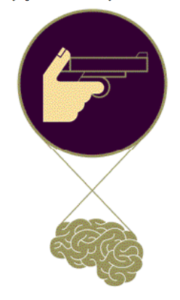SLS to Advance “Neurolaw” as Part of $10 Million Grant
What happens when scientists, and ultimately courts and juries, can peer—quite literally—inside the human mind? •
Thanks to a $10 million grant from the MacArthur Foundation, Hank Greely (BA ’74), Deane F. and Kate Edelman Johnson Professor of Law, intends to find out. The grant—announced in October and shared by a nationwide consortium of legal scholars, jurists, philosophers, and scientists over the course of three years—is an ambitious effort to address difficult legal and ethical questions that are arising as neuroscientific and technological advances deepen our understanding of human behavior.

“Neuroscientists have been conducting pathbreaking research using neuroimaging technology,” says Greely, who directs the Stanford Center for Law and the Biosciences and is also a professor of genetics (by courtesy), “but there are many open questions about how the findings will be applied in the context of existing law and no guideposts for judges and juries who will have to weigh this complicated neuroscientific evidence when making decisions about guilt, innocence, or liability.”
Allowing neuroscientific evidence to be considered at trial has enormous implications. Just as DNA evidence can exonerate some and convict others, breakthroughs in the use of brain-scanning technologies such as functional magnetic resonance imaging (fMRI) to detect behaviors like lying or a propensity toward violence could help condemn or free those being tried in criminal courts. Neuroscience could change investigations, pleas, verdicts, and sentences, especially when it comes to trying minors, the criminally insane, and others whose neurobiology may factor in their crime. What’s more, the possibility of predicting criminal behavior could open up new avenues for prevention.
“With this exciting new technology we have to be alert to two different kinds of issues,” says Greely. “We have to worry about the effects of the technology if it works, but we also have to worry about the too-early application of technologies that do not yet work—and may never work.”
The MacArthur project, based at the University of California, Santa Barbara, has three working groups that will ultimately develop research proposals aimed at improving law, policy, and legal proceedings. Greely’s group, which includes Stanford scholars William Newsome, professor and chair of neurobiology, and Anthony Wagner (PhD ’97), associate professor of psychology, will focus on the legal implications of abnormal brains in people with brain damage, people who are mentally ill, and juveniles. Justice Sandra Day O’Connor ’52 (BA ’50) is serving as honorary chair of the overall project.
